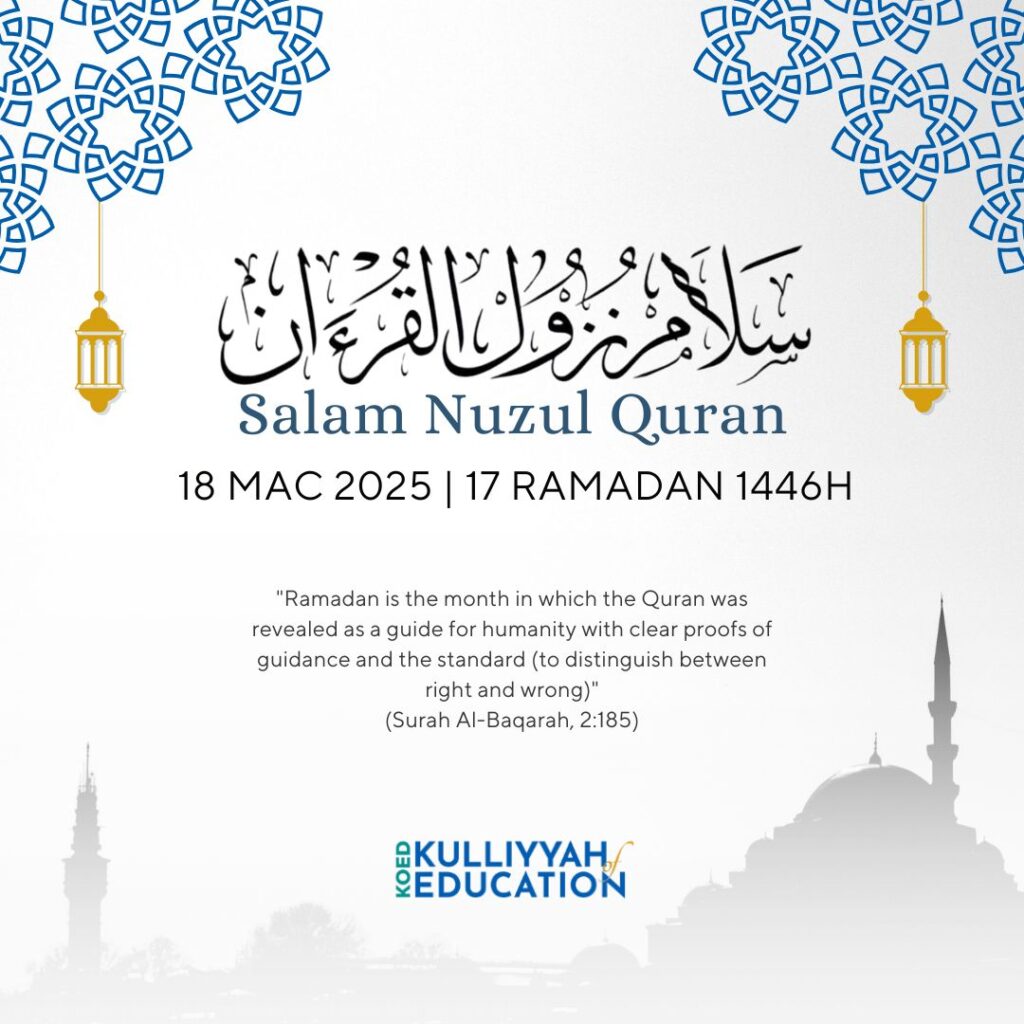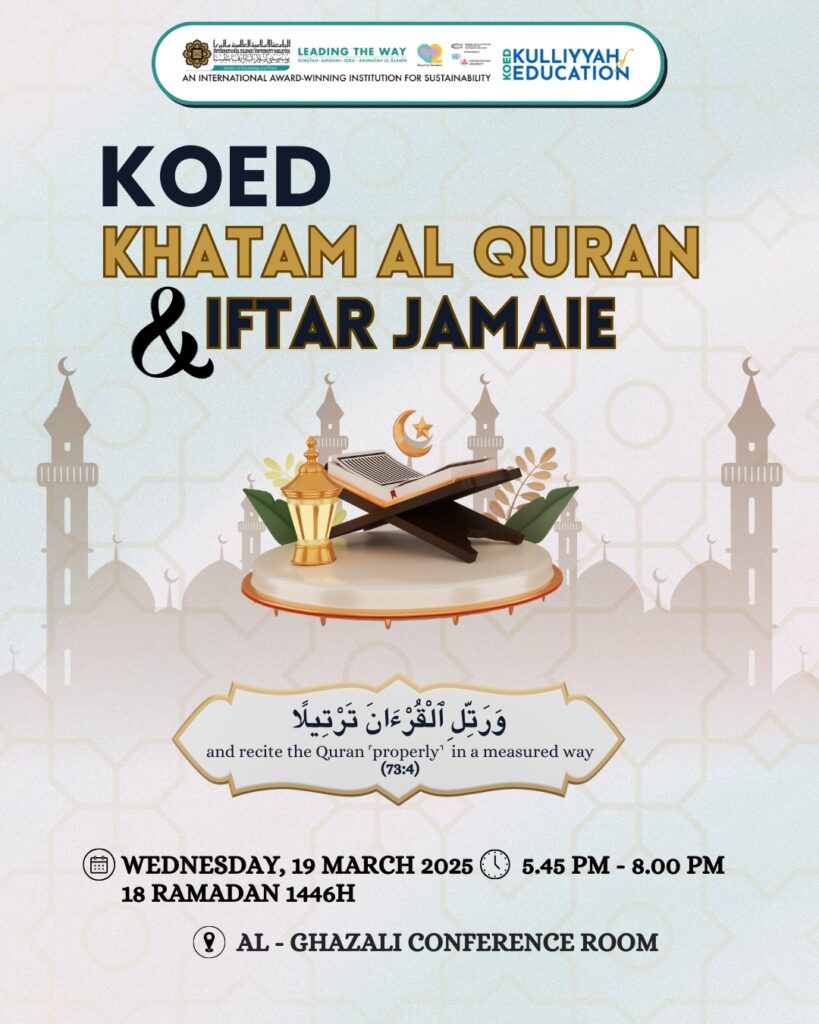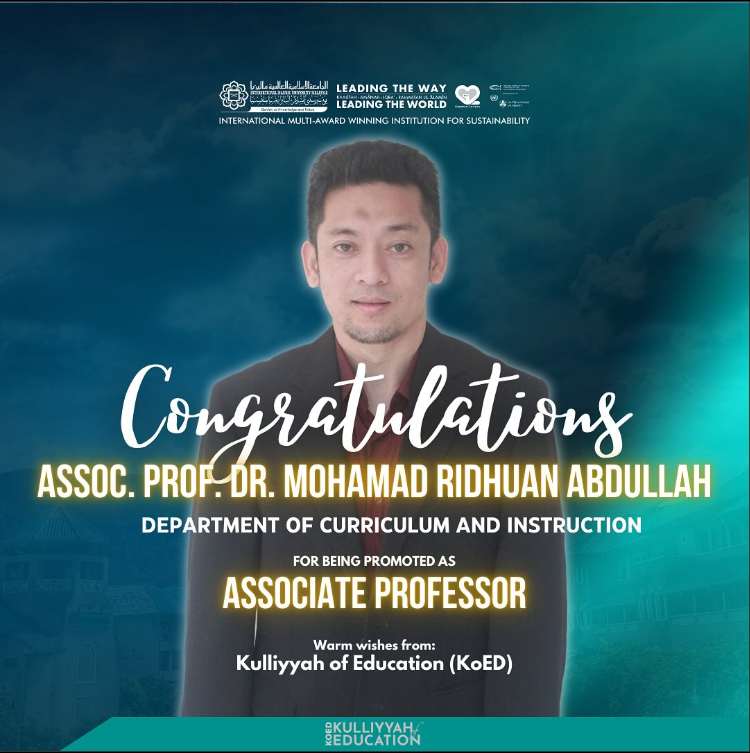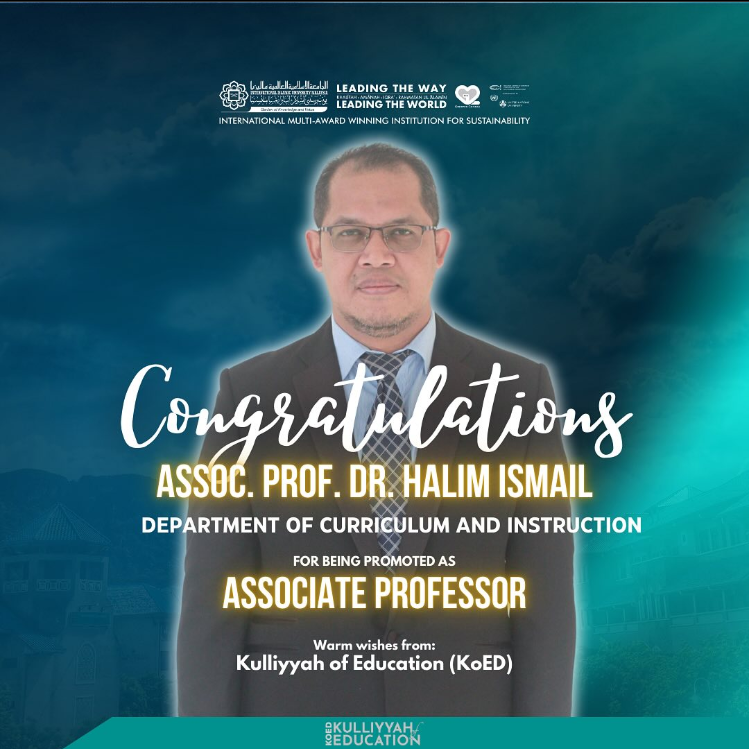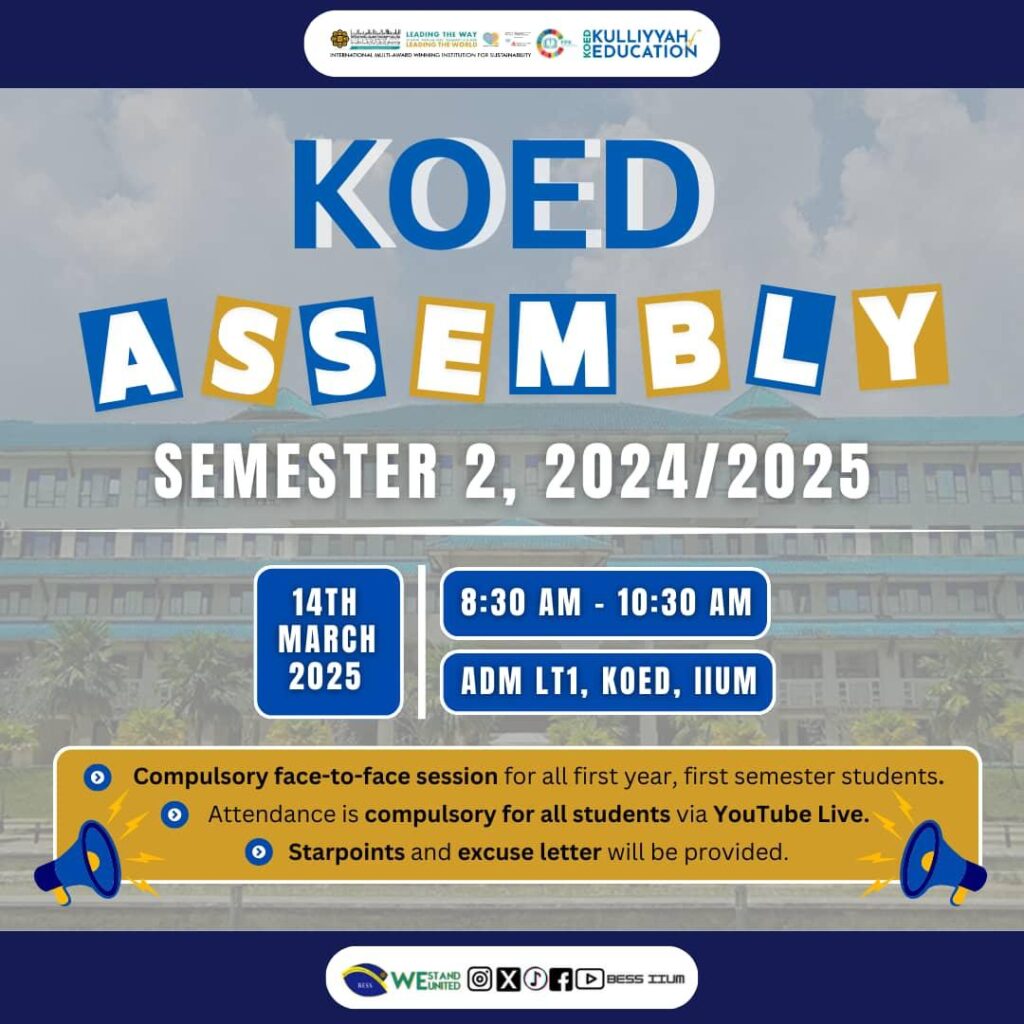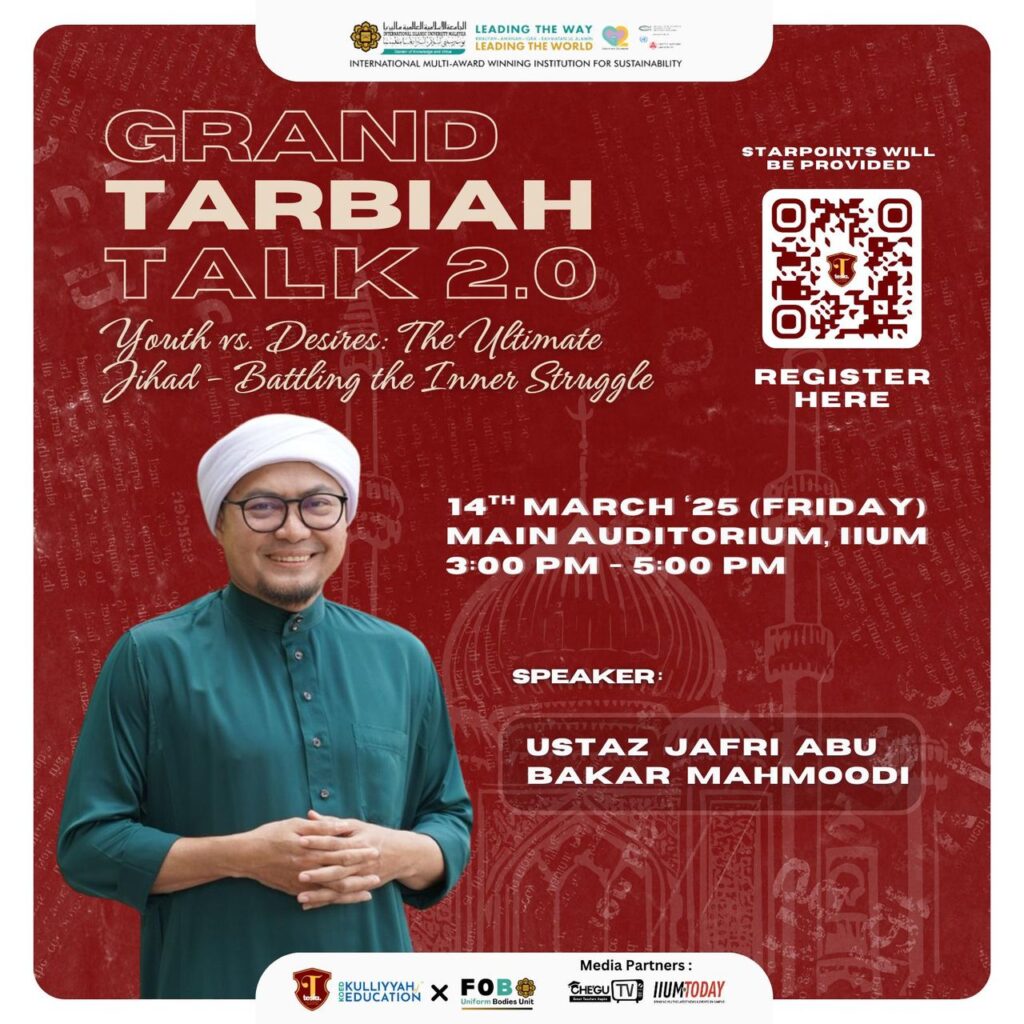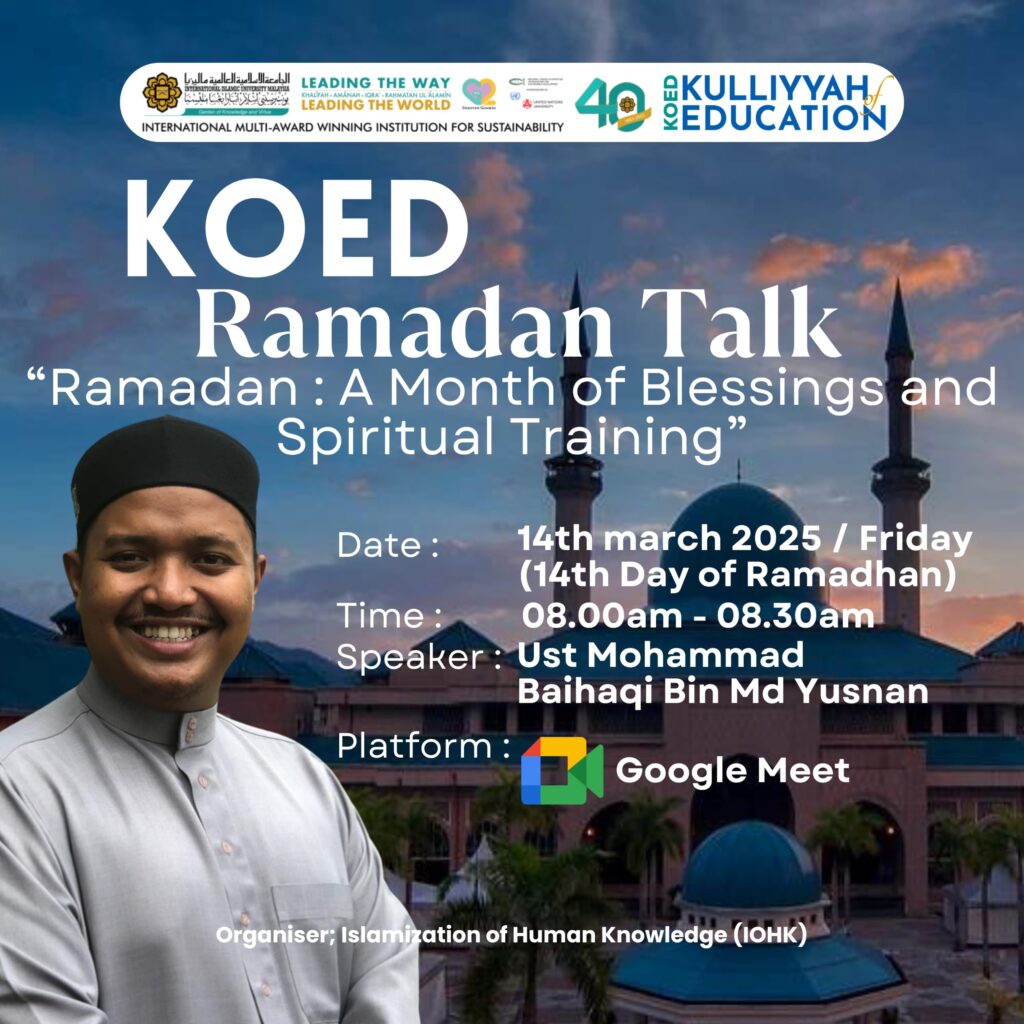INVITATION TO YASSIN AND DU’A RECITATION FOR PROF. DR. FAIZAH IDRUS
Assalamualaikum Wbt. Wrt. Dear Prof./ Dr./ Sir/ Mdm/ Br./ Sr., May this message reach you in the best of health and Iman by the grace of Allah Subhanahu Wa Ta’ala. The Kulliyyah of Education cordially invites you to join us for the recitation of Surah Yasin and Du’a for our beloved colleague, Prof. Dr. Faizah Idrus, who is currently receiving treatment at the National Cancer Institute (IKN). The details of the program are as follows: Date/Day : 10th April 2025 / ThursdayTime : 8.15 pm – 9.30 pmPlatform : Zoom Meeting(https://iium.zoom.us/j/99279699479?pwd=w5DaQyIPUbYg0R4vXlC4wELaltYK62.1) Meeting ID: 992 7969 9479Passcode: 297088 May Allah SWT bless Prof. Dr. Faizah with a swift and complete recovery. Allahumma Amin. Your presence and prayers would be greatly appreciated. Thank you. Kulliyyah of Education (KOED)International Islamic University Malaysia (IIUM)




